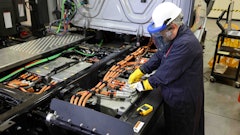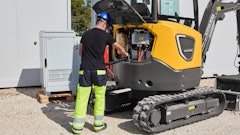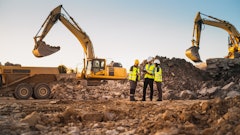American business leaders are speaking out in dismay over the American Chemistry Council’s recent political attacks on the U.S. Green Building Council’s LEED v4 (formerly known as LEED 2012) standard for offering a voluntary credit for avoidance of chemicals of concern.
LEED is a voluntary standard that enables builders to work toward goals of energy savings, less toxic materials, and other sustainable goals.
Designers, developers, and building owners recognize the leadership role they can play in protecting the health of their building occupants and others occupationally exposed along the life cycle of those materials by selecting safer alternatives.
Manufacturers such as Construction Specialties and the 30 participants in the Health Product Declaration project pilot are finding opportunity in addressing chemicals of concern through disclosure and product reformulation.
The USGBC LEED v4 is acknowledging that this movement to avoid chemicals of concern is an important part of the sustainability of a building; it would reward both disclosure of chemicals in products and avoidance of chemicals of concern in its new credits.
“The USGBC’s proposed upgrade of LEED confirms the construction market is including chemicals in its view of sustainability. Creating alternatives to fill market demand opens new business opportunity and creates positive press for innovators among ACC’s membership,” says Howard Williams, LEED AP ID + C, Construction Specialties, Inc. “Will time present a better opportunity for the innovators who break rank with ACC?”
“The time is calling for economic growth that taps the innovation and ingenuity of American businesses and mobilizes entrepreneurs to use the best science to create safer, healthier chemicals and products,” offered David Levine, CEO, American Sustainable Business Council (ASBC). “This is not a time to attack USGBC’s first chemicals of concerns credit, but to applaud it and to continue to do more to foster an economy that utilizes smart, cutting-edge business practices based on quality science.”
"The ACC's attack on the LEED program is a disservice to those chemical companies who recognize the growth and profit potential of developing innovative materials to satisfy the steadily increasing market demand for energy-efficient buildings employing less hazardous chemicals," said Richard Liroff, Executive Director of the Investor Environmental Health Network.
“Green buildings are about more than energy and water conservation; they must also include consideration of human health, biodiversity, and sustainable material resource cycles,” emphasizes Robin Guenther, Principal, Perkins+Will, one of the nation’s largest architectural and building firms. “The fact that the USGBC is willing to signal the market that chemical composition of building materials does matter is long overdue. The construction industry needs the USGBC and LEED, and citizens need it as well to create the conditions in which safer and healthier building materials will not only survive but thrive.”
“For health care providers, the imperative is to do no harm”, says Susan Vickers, Dignity Health’s Vice President of Community Health. “Transforming the health care system for us includes engaging in meaningful partnerships with others to promote sustainability. Disclosure, and ultimately, the removal of chemicals of concern in products and materials are an important part of that equation. We commend USGBC’s leadership to advance LEED v4 and call on the ACC to work with government, businesses, and the broader community to support innovative solutions and economic progress, not stop it.”
About The American Sustainable Business Council
The American Sustainable Business Council and its member organizations represent more than 150,000 businesses nationwide, and more than 300,000 entrepreneurs, executives, managers, and investors. The council includes chambers of commerce, trade associations, and groups representing small business, investors, microenterprise, social enterprise, green and sustainable business, local living economy, and women and minority business leaders. ASBC informs and engages policy makers and the public about the need and opportunities for building a vibrant and sustainable economy. asbcouncil.org

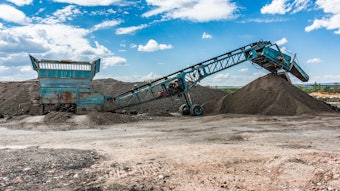
![Img 1707[56]](https://img.forconstructionpros.com/files/base/acbm/fcp/image/2023/04/IMG_1707_56_.6437076c97961.png?auto=format%2Ccompress&fit=crop&h=191&q=70&rect=0%2C462%2C1920%2C1080&w=340)










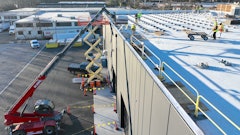
![Glp Porsche 072723 465 64ee42287c29e[1]](https://img.forconstructionpros.com/files/base/acbm/fcp/image/2024/03/GLP_PORSCHE_072723_465.64ee42287c29e_1_.65e88b8589b9c.png?auto=format%2Ccompress&fit=crop&h=135&q=70&rect=0%2C520%2C2250%2C1266&w=240)
